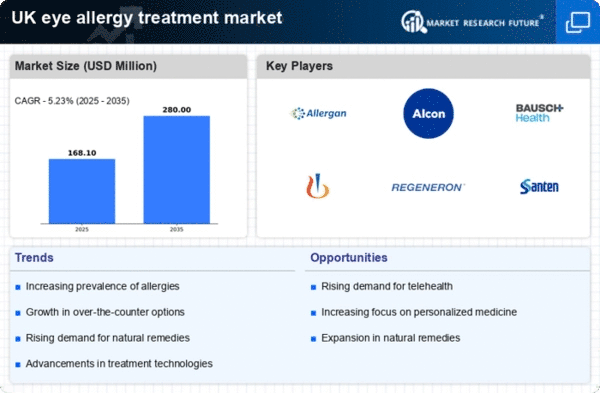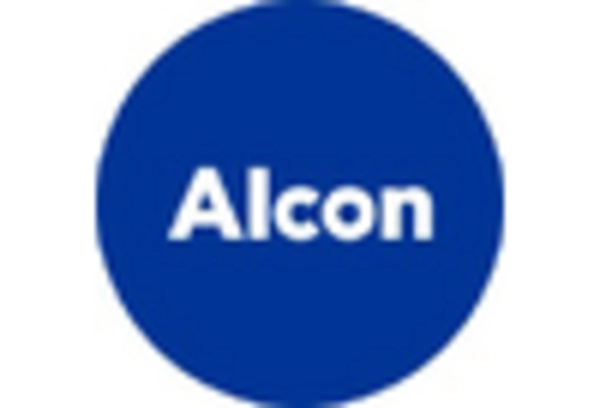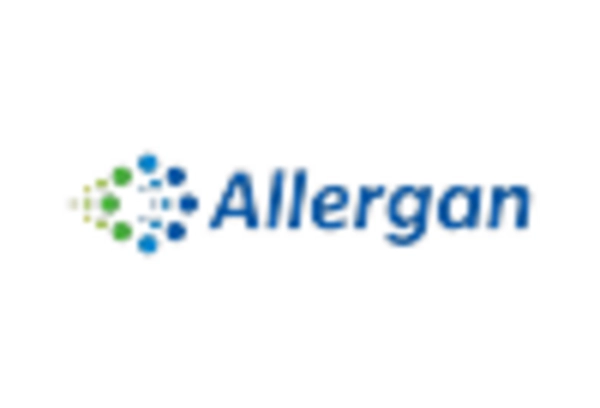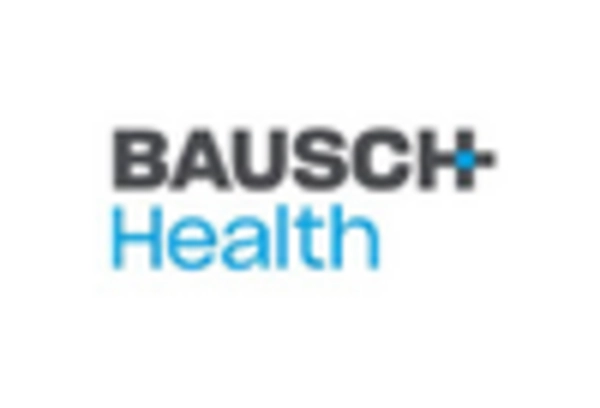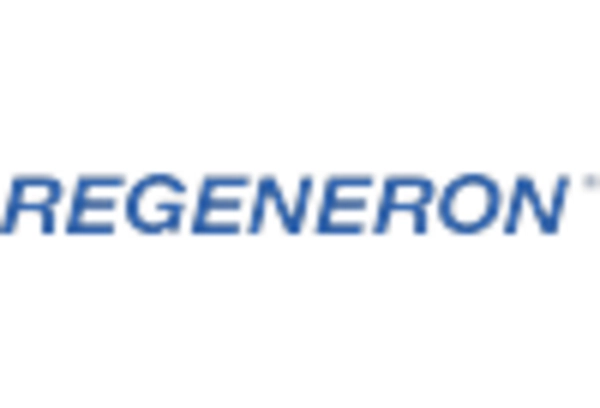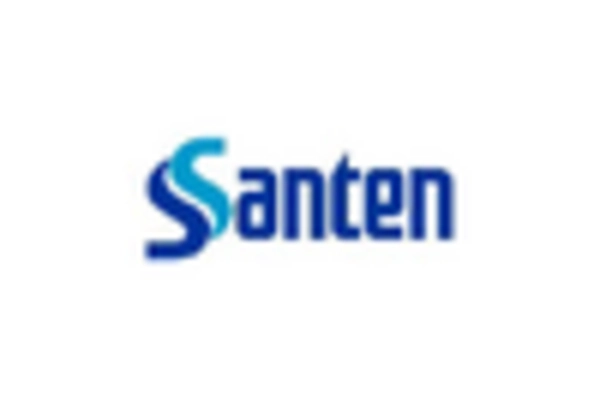Increasing Allergy Incidence
The rising incidence of allergies in the UK is a pivotal driver for the eye allergy-treatment market. Recent data indicates that approximately 30% of the UK population suffers from some form of allergy, with eye allergies being particularly prevalent. This increase in allergy cases is attributed to various factors, including environmental changes and lifestyle modifications. As more individuals experience symptoms such as itchy, watery eyes, the demand for effective treatments is likely to surge. Consequently, pharmaceutical companies are focusing on developing innovative solutions to cater to this growing need. The eye allergy-treatment market is expected to expand as healthcare providers seek to address the rising burden of allergic conditions.
Growing Awareness and Education
There is a notable increase in awareness and education regarding eye allergies among the UK population, which serves as a crucial driver for the eye allergy-treatment market. Public health campaigns and educational initiatives by healthcare professionals are informing individuals about the symptoms and management of eye allergies. This heightened awareness is leading to earlier diagnosis and treatment, thereby increasing the demand for therapeutic options. As patients become more informed about available treatments, they are more likely to seek medical advice and pursue effective solutions. Consequently, the eye allergy-treatment market is expected to experience growth as healthcare providers respond to this demand by offering a wider range of treatment options.
Rising Demand for Natural Remedies
The increasing consumer preference for natural remedies is emerging as a notable driver in the eye allergy-treatment market. Many individuals are seeking alternatives to conventional medications due to concerns about side effects and long-term use. This trend is reflected in the growing market for herbal and homeopathic treatments, which are perceived as safer options. Recent surveys indicate that approximately 40% of allergy sufferers in the UK are exploring natural remedies for symptom relief. As a result, manufacturers are responding by developing and marketing products that align with this demand. The eye allergy-treatment market is likely to expand as more consumers seek holistic approaches to managing their symptoms.
Regulatory Support for New Treatments
Regulatory support for the approval of new treatments is a significant factor impacting the eye allergy-treatment market. The UK regulatory framework has streamlined the process for bringing innovative therapies to market, which encourages pharmaceutical companies to invest in research and development. Recent initiatives aimed at expediting the approval of allergy medications have the potential to enhance patient access to effective treatments. As a result, the eye allergy-treatment market may witness an influx of new products that address unmet needs. This regulatory environment not only fosters innovation but also ensures that patients have timely access to the latest therapeutic options, thereby improving overall health outcomes.
Advancements in Pharmaceutical Research
Ongoing advancements in pharmaceutical research are significantly influencing the eye allergy-treatment market. The development of novel antihistamines and corticosteroids has led to more effective treatment options for patients suffering from eye allergies. Recent studies suggest that the market for allergy medications is projected to reach £1.5 billion by 2026, driven by these innovations. Furthermore, the introduction of combination therapies that target multiple pathways of allergic reactions is enhancing treatment efficacy. As research continues to evolve, the eye allergy-treatment market is likely to benefit from new formulations and delivery methods, which may improve patient adherence and outcomes. This trend underscores the importance of continuous investment in research and development within the industry.


